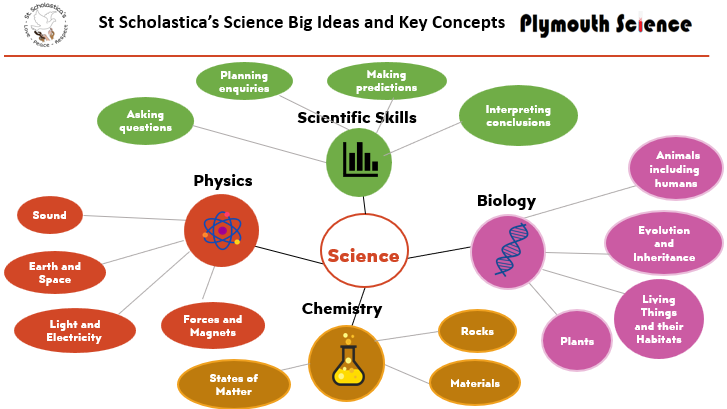"The important thing is to never stop questioning" -
Albert Einstein
Our Vision for Science
At St Scholastica’s, we encourage children to be inquisitive throughout their time at the school and the next stage of their development. The science curriculum fosters a healthy curiosity in children about our universe and promotes respect for the living and non-living things. Throughout the programmes of study, the children will acquire and develop the key knowledge that has been identified within each unit and across each year group, as well as the application of scientific skills. We ensure that the Working Scientifically skills and Enquiry skills are built-on and developed throughout children’s time at school so that they can apply their knowledge of science when using equipment, conducting experiments, and explaining concepts confidently and continue to ask questions and be curious about their surroundings.

